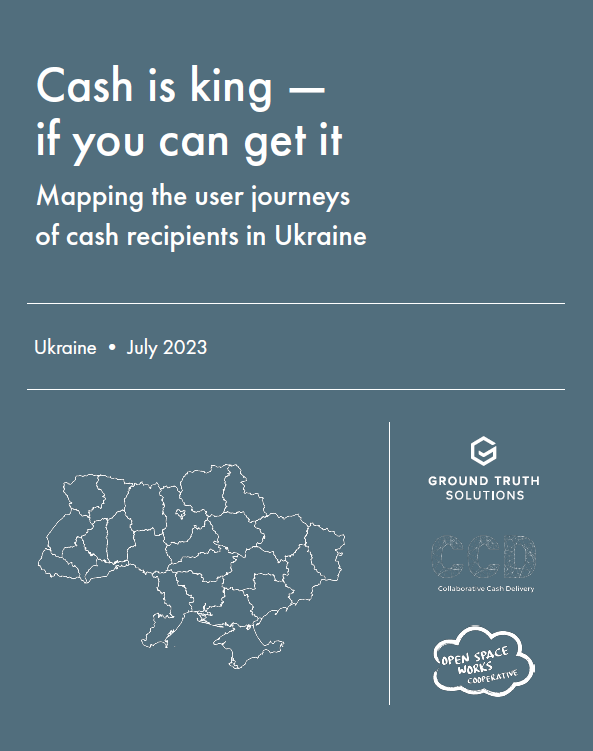Ukraine
The onset of the full-scale war on 24 February 2022 in Ukraine provoked one of the biggest humanitarian crises Europe has seen in decades.
A battle-damaged street in Ukraine’s capital, Kiev. Photo: Алесь Усцінаў
Overview
More than 14 million people, about 40 percent of the Ukrainian population living in Ukraine, are in need of humanitarian assistance in 2024. The 2024 humanitarian needs and response plan (HNRP) is targeting 8.5 million of these, and states “accountability, participation and empowerment of the affected population” as some of its guiding principles. Aligning humanitarian assistance, particularly cash assistance, with Ukraine’s comprehensive social protection system, is another priority.
Our work
We have been working in Ukraine and neighbouring countries hosting Ukrainian refugees since May 2022 to understand the views of affected communities, aid recipients and local actors regarding the humanitarian response.
Since January 2023, we have been implementing a project in collaboration with the Collaborative Cash Delivery (CCD) Network with the aim of understanding the specific experiences of people having applied for or received cash assistance from humanitarian organisation or through government social protection schemes in Ukraine.
Between November 2023 and June 2024, we explored affected people’s knowledge and attitudes towards (protection against) sexual exploitation and abuse [(P)SEA], in a study funded by World Vision and International Rescue Committee.
In 2022, we conducted a series of survey and qualitative interviews with funding from the Disasters Emergency Committee (DEC) to find out what the humanitarian response looks like from the community perspective.
Partnering with local experts at the Kyiv International Institute of Sociology, we sought and analysed people’s views on access to assistance, aid-seeking behaviour, information access, knowledge of feedback mechanisms, and fairness. We used this analysis to facilitate dialogue across the country, with and between aid recipients, implementers, leaders and funders, to support incremental improvement in the ongoing response.
























